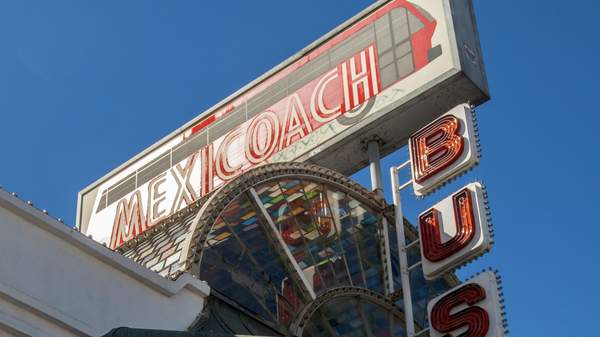Overview
Ah, Tijuana. Rhymes with tequila and has a dirty reputation for illegal border crossings and some other illicit activities - for being worse than the way Jack Kerouac describes it, in short.
But not for long. I mean, it'll still lazy rhyme with tequila (always), but the city is now looking at becoming the Mexican version of Silicon Valley thanks to Miguel Buenrostro, founder of Reactivando Espacios. His venture focuses on taking underused or abandoned buildings and repurposing them into creative spaces for commerce, art and culture. His most recent project: an abandoned bus station.
The bus station was built back in 1983, but was fell into disrepair and was officially closed down in 2009. During the '80s, it was used to accommodate the Mexican diaspora - the station thriving for the decades that followed. During those times, Tijuana was the prime destination for hundreds of thousands of Mexican migrants who had left the countryside in search of better jobs, namely work at the maquiladoras— the free-trade factories which were cropping up along the U.S.-Mexico border. “At one point, the station handled 20,000 people per week, but that all came to an end,” said Buenrostro.
After a drug war which peaked with the arrest of the mayor in 2007 for possessing weapons tied to murders - along with the murder of 32 police officers in 2010, the city practically flatlined with the decline in tourism and subsequent economic controls.
Yet, with sites like the ex-bus station Hub Stn, Tijuana's starting to take a different direction, which comes as no surprise to Buenrostro. “Tijuana has always been a very creative city out of necessity,” said Buenrostro. “You have to improvise in order to survive.”
Hub Stn currently has eleven tenants, totaling 50 entrepreneurs focused on technology and corporate branding. Its second floor looks like its out of a Mexican-flavoured IKEA catalogue - modern, open and with all the usual office amenities such as a conference room, Wi-Fi access, and a common area.
One of its tenants, Damian Rivas, is a self-taught Web designer who began his career painting murals of Tijuana’s gritty cityscape. His latest project is an app designed to alleviate parking congestion on Tijuana’s streets (umm, send Aucklanders a copy when you get the chance). Rather than driving around for ages hoping to find a parking spot, app users would be able to reserve a slot in one of the city's commercial parking structures. Data collected on the shopping and traffic patterns of consumers could be valuable as well. “As it is, parking lot owners know next to nothing about their customers,” he said.
